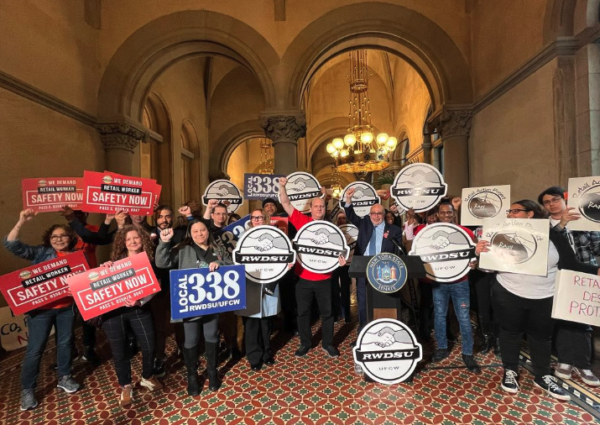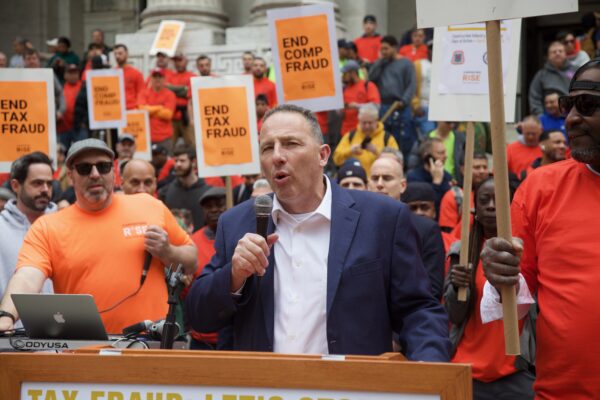May 22, 2013
By Marc Bussanich
Washington, D.C.—Amtrak’s president, Joseph H. Boardman, was called to testify again before a House subcommittee—this time on the cost drivers of passenger rail. Republican members complained that Amtrak is again losing money, particularly on its long-distance routes. But the Democrat ranking member from Florida, Corrine Brown, said committee members are too overly focused on Amtrak turning a profit rather than providing a service. Watch Video
The former chair of the Committee on Transportation and Infrastructure, John L. Mica, who is fond of saying that Amtrak is run like a Soviet-style train system and said it again yesterday at the hearing, protested Amtrak’s losses between Fiscal Year 2011 and 2012 and directly asked Mr. Boardman how much money did the national passenger rail system lose on food and beverage service, by which Mr. Boardman replied a net loss $72 million out of total revenue of $132 million.
“Amtrak is actually losing ground from last year. The [California] Zephyr Line [runs from San Francisco to Chicago] has gone from a loss per passenger of $165.80 to $182.00 and the Southwest Chief from a loss per passenger of $177.00 to $183.40,” said Mica.
According to the new committee chairman, Jeff Denham (R-CA), Amtrak’s long-distance routes, which serve many of the country’s most rural and isolated areas and where there are no other available public transit options to travel to cities, lost a combined $600 million in 2012.
But Boardman replied that Amtrak has a clear mandate via the Rail Passenger Service Act of 1970 as amended by the Passenger Rail Investment and Improvement Act of 2008 (PRIIA) to provide an interstate rail network.
“Should Congress decide to continue a national system in the next PRIIA reauthorization, Amtrak is dedicated to ensuring that long distance trains are sustained and that they are run as efficiently and effectively as possible,” Boardman said.
The PRIIA act laid out a new vision for passenger rail in the United States by forging Amtrak, the U.S. Department of Transportation (US DOT), Federal Railroad Administration, states and other stakeholders to strengthen inter-city passenger rail, which is experiencing record ridership.
In March, the Metropolitan Policy Program at the Brookings Institution issued a report on the renaissance of passenger rail in the United States. The lead author, Robert Puentes, testified at yesterday’s hearing and provided some examples of how the states, since the introduction of PRIIA, are recommitting to passenger rail.
“In New York’s current budget, $44 million is being allocated for the Empire Corridor, Pennsylvania is contributing $4 million annually to support the Pennsylvanian line and Vermont is allocating an additional $3 million for the Vermonter line,” said Puentes.
As the act comes up for reauthorization in September, Republican subcommittee members expressed alarm over Amtrak’s subsidies from the federal government. Chairman Denham asked Boardman and the other witnesses testifying before the committee how much Amtrak would need in the upcoming reauthorization (for five years) to maintain national operations and to bring its network up to a state of good repair.
Boardman didn’t provide a number, but Ross B. Capon, president of the National Association of Railroad Passengers, said $8 to $9 billion for five years would be required.
Congressmen Roger Williams (R-TX) and Trey Radel (R-FL), who both come from the private sector, questioned Boardman whether Amtrak could be profitable anytime soon.
“Not on the long-distance routes. When you look at covering operating costs, if you were driving a bus up our railroad and didn’t have to pay for what’s underneath, you’d make a profit,” said Boardman.
Ms. Brown (D-FL) reminded the committee members that 3,000 people lost their lives during Hurricane Katrina because there wasn’t a public mode of transport to move people.
“The buses were underwater during Katrina. So government is not in there for profits, but service, service, service,” she exclaimed.
She also noted that there isn’t a form of public mass transit or rail in the world that’s not combined with private freight operators that makes a profit,” said Brown.
Follow Marc Bussanich on Twitter marc@laborpress.org


